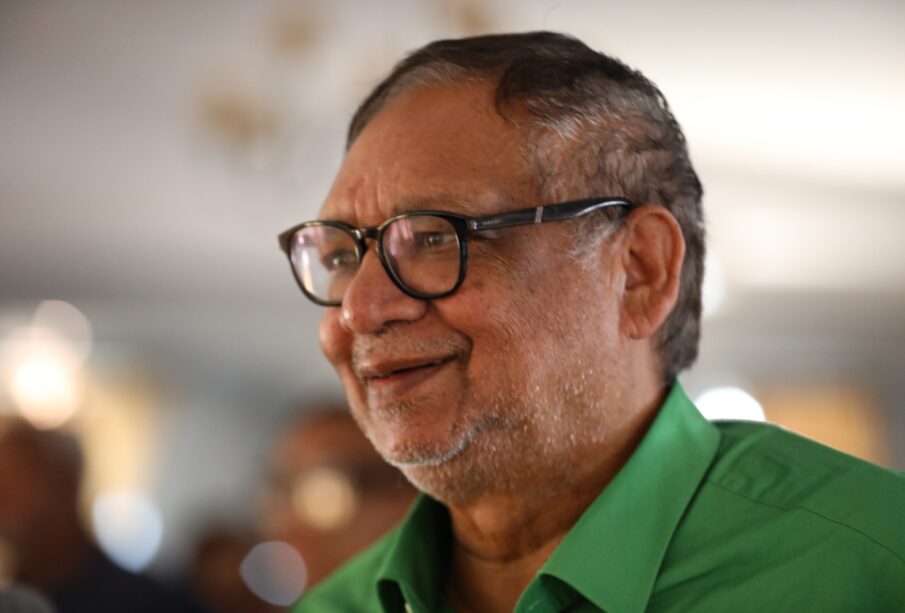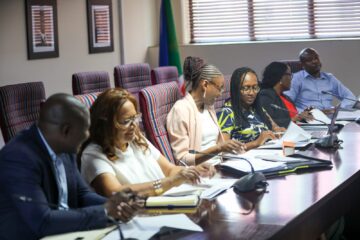DEPUTY MINISTER GANIEF HENDRICKS ADDRESSES STRATEGIC PLANNING SESSION ON POVERTY ERADICATION AND NATIONAL DEVELOPMENT GOALS

Deputy Minister Ganief Hendricks
Precious Mupenzi
- During a strategic planning session at Diep in die Berg Conference Centre, Deputy Minister Ganief Hendricks urged senior managers and Minister of Social Development Ms. Sisisi Tolashe to unite against South Africa’s pressing issues of unemployment, inequality, and poverty, emphasising the importance of the National Development Plan (NDP) 2030.
- Hendricks launched the Department of Social Development’s “first 100 Days” initiative, committing to ambitious targets aimed at ensuring every South African has R1000 for food by 2030, while stressing the necessity for local focus and accountability among Ministers.
- Highlighting collaboration and new strategies, Hendricks announced the Gauteng Premier’s plan to recruit unemployed social workers as law enforcement agents and called for all stakeholders to work together to eradicate poverty and inequality.
At a crucial strategic planning session for the Department of Social Development (DSD) held at Diep in die Berg Conference Centre, Deputy Minister Ganief Hendricks called for a united effort to address South Africa’s persistent challenges of unemployment, inequality, and poverty. Attended by senior managers and Minister of Social Development Ms. Sisisi Tolashe, the meeting underscored the significance of the recently established Government of National Unity (GNU) in prioritising the National Development Plan (NDP) 2030 as a framework for recovery and development over the next three years.
In his opening address, Hendricks stated, “The President made it clear that the next three years will prioritise the NDP 2030. We must pave the way forward to eradicate unemployment, inequalities, and poverty.” He emphasised the urgency of the situation, reminding DSD officials that many South Africans still lack access to basic services, food, and employment. “Imagine a life without basic services, no food, and unemployment; this is the reality for many,” he said, highlighting the need for the DSD to concentrate its efforts at the district level.
The Deputy Minister announced the launch of the DSD’s “first 100 Days” initiative, which aligns with the recently concluded 100 Days for the 7th Parliament. He remarked, “By 2030, every South African must have R1000 for food,” asserting that while these targets are ambitious, they are essential for enhancing the quality of life for citizens.
Hendricks noted a collaborative approach, stating that accountability for achieving these goals has been assigned to Ministers and Deputy Ministers through a new structure called “Consequent Management.” This initiative aims to ensure that deadlines are met and responsibilities are clearly defined. “We are here today to tell the President that we are going to achieve the eradication of poverty by 2030,” he declared.
Additionally, the Deputy Minister stressed the importance of understanding and implementing the objectives of the International Labour Organization’s ‘Convention on Decent Work,’ of which South Africa is a signatory. “We must grasp the benefits of decent work; it’s not just about paying large sums of money,” he remarked.
As the session progressed, Hendricks announced a commitment from the Gauteng Premier to recruit unemployed social workers as law enforcement agents, underscoring the need for their training and preparation for this new role. The workshop aimed to reflect on past successes and failures, prepare for the upcoming Social Sector Lekgotla in October 2024, and develop a strategic plan aligned with the GNU and the Medium-Term Development Plan (MTDP).
The urgency of the challenges ahead was evident, as Deputy Minister Hendricks called on all stakeholders to join forces in a concerted effort to “leave no one behind” in the fight against poverty and inequality.
















